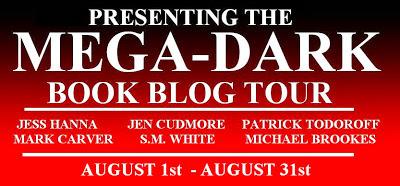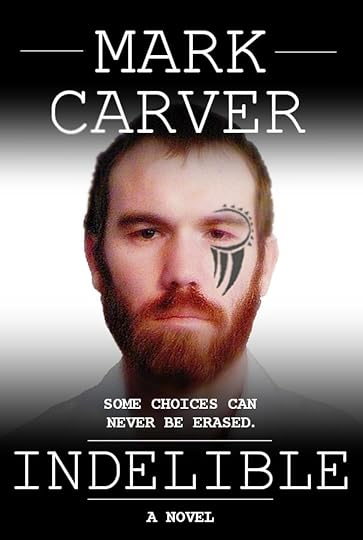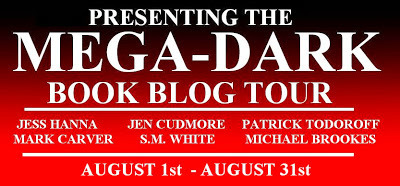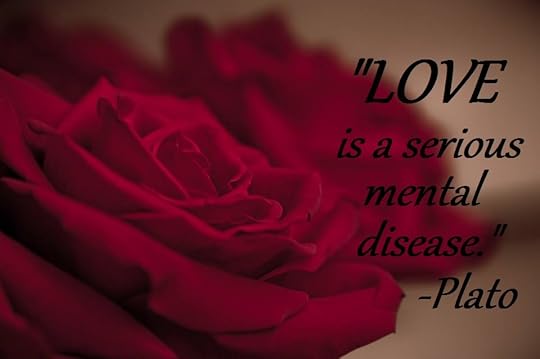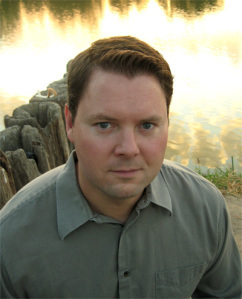Patrick Todoroff's Blog, page 30
August 28, 2013
Steven Pressfield re-blog: Art and Polarity
Swiped from the blog of one of my Top Ten favorite authors. Worth a read and a good think, IMO.
As a Christian, I’m aware my worldview makes statements and value judgments that are culturally unpopular, as well as run cross-grain to the defiant streak in all of us. Even trying to be clear, credible and consistent, some degree of hostility is inevitable.
As an Engager, (see previous re-blog from Mike Duran) there are times I feel beset on both flanks: by caustic secularists who hold my faith in contempt, and Separatists ever ready with charges of heresy and compromise.
None of that excuses me from my work, however. I’m convinced despite contradiction, controversy or rejection, anyone pursuing a vocation must press on, however clumsily, and break through. Not simply to fulfill ‘the work set before them’, but to keep a right heart and clear conscience in the sight of the God who called them in the first place.
oh, and you need to read The War of Art and Gates of Fire. Better yet, ingest them so they change you on a cellular level.
***
Art and Polarity
Posted: 23 Aug 2013 12:52 AM PDT
The other day I overhead this conversation:
Man #1: “I ran into Frank Smith (not his real name) at the beach yesterday…”
Man #2: “Isn’t that the guy who cheated on his wife, got a DWI, and said all of those nasty things about Jill’s daughter in law?”
Man #1: “…Well…yes…but I try not to judge.”
I run into this “I don’t judge” stuff a lot and it infuriates me on many levels. But as this is a blog about what it takes to create art, I’ll just address why this “moral position” is at best hypocritical and at worst a force as undermining and dark as Resistance.
If you want to create art, you need to make judgments about human behavior and take a side. How well you convey and support your point of view is a measure of your skill. On-the-nose judgments in art, like that hilarious statue of the founder of Faber College in Animal House with the epitaph “Knowledge is Good” are funny because they are so generic.
The epitaph tells the viewer that the setting of the story is a College founded by an idiot. What is really wonderful about that scene is that it appears in the opening credits, giving the viewer no doubts about the tenor of the art to come.
The scene in Woody Allen’s Manhattan where the Woody character is having cocktail conversation at the Museum of Modern Art is another one of my favorites…
Guest #1: “Has anybody read that Nazis are gonna march in New Jersey, you know?”
Woody character: “We should go there, get some guys together. Get some bricks and baseball bats and explain things to ‘em.”
Guest #2: “There was this devastating satirical piece on that in the Times.”
Woody character: “Well, a satirical piece in the Times is one thing, but bricks get right to the point.”
Guest #2: “But biting satire is better that physical force.”
Woody character: “No, physical force is better with Nazis. It’s hard to satirize a guy with shiny boots.”
Today’s “let’s all get along, not judge or challenge anyone” groupthink also reminds me of a major scene sequence in Milos Forman’s adaptation of Ken Kesey’s 1962 novel One Flew Over the Cuckoo’s Nest.
Polar Opposites: Louise Fletcher as Nurse Ratched and Jack Nicholson as R.P. McMurphy.
Jack Nicholson portrays R.P. McMurphy, a good time Charlie with authority figure issues. He’s playing crazy at a maximum-security insane asylum to get out of a work detail jail sentence. Years ago, they sentenced petty criminals to hard labor. I remember as a kid being in the backseat driving South and watching chain gangs cutting overgrown brush on the median of I95—Donn Pearce must have seen them too. He wrote Cool Hand Luke.
McMurphy’s Moriarty is Nurse Ratched, the head nurse in the asylum. Louise Fletcher played this role so brilliantly—all ice and pursed lips—she had difficulty finding work after winning the Oscar for it.
One afternoon, during an interminable group therapy session, McMurphy requests that the guys be allowed to watch the World Series that evening. Knowing that the last thing the other men would want to do is stand up and challenge the way she rules her kingdom, Ratched sees an opportunity to put McMurphy in his place.
She’ll put the request up to a vote.
McMurphy sticks his hand up to vote “yea” assuming that his fellow patients will come to the same conclusion that he has. By simply raising their arms, together the men can let this lady know that denying a simple pleasure like watching a ball game to a bunch of lunatics is absurd.
Which one of you nuts has any guts?
The needy fuser Cheswick is the only other one who has the courage to challenge Nurse Ratched’s command. Meeting adjourned. The men are then shuttled into the shower room for their evening cleaning. McMurphy is out of his mind with anger.
If you’re a writer, this scene is a perfect example of a set-up that dramatically portrays a character’s inner change. How does Ken Kesey pay it off?
From the first moment McMurphy lays eyes on Ratched, the reader/viewer knows he judges her as rotten to the core. McMurphy is not afraid to judge. His problem is that he acts on his judgments too quickly. That’s what got him in the clink in the first place.
In the nuthouse, though, he is forced to keep the judgment to himself. He’s supposed to be crazy! And to McMurphy, only crazy people don’t judge, so he shouldn’t either.
But when the evidence of Ratched’s evil is incontrovertible to him, he can’t help himself but act. He’s the novel’s protagonist. He’s the hero. If he doesn’t act on his judgments, there’s no story.
Kesey could have made any number of choices with this scene. He could have had McMurphy act selfishly, like a child, and physically attack a guard or an inmate or himself. Something the character has a reputation for doing earlier in his life.
Instead, for the first time (and the perfect time) Kesey has his character act beyond himself. He changes his behavior. McMurphy sees that these men have it within themselves to judge Ratched as a tyrant. If he can make them understand how important it is to make a judgment and to act on that judgment—even if it puts them in harm’s way—he will help them. And helping them will help him bring down tyranny. He’ll win.
McMurphy, already known as a consummate hustler, challenges all of the men to take a bet. He puts all of his money on his succeeding. He will pick up a thousand pound marble bathroom vanity, throw it through the barred window, walk to a nearby bar with his buddy Cheswick, wet his whistle and watch Mickey Mantle play in the World Series…Who wants some of this action?
He’s so convincing that only the most cynical among them take his bet.
Playing McMurphy as only he could play him, Jack Nicholson grabs the edges of the vanity, squats and surges into the plumbing. He turns blue from effort. He commits to the action, gives it his best shot. When he’s drenched with sweat, spent and defeated, he walks out of the room. But not before turning to the stunned assemblage and saying:
“At least I tried.”
As a child in the 60s and 70s, I was raised on stories like this. (I wish we had more of them today) And they’ve had a profound influence. This is why art is so important.
These stories taught me that to passively disengage for fear of reprisal is cowardly. Making a judgment, taking a stand and then acting against an injustice or acting to support excellence is the stuff of the everyman hero.
And yes, not saying anything, not “judging” the horrible or honorable behavior of other people is acting too. As deliberate an act as getting overly excited about an idea and shouting in a business meeting.
If you don’t call people on their shit, you’re placing yourself above them, as if their actions are so inconsequential to you that they need not be considered. You’re above it all, some kind of Ayn Randian ubermensch behaving only out of self-interest. The same goes for not giving a standing ovation for great work because others remain seated. If you admire a work, let the artist know. They can use all the attaboys they can get. It’s Hell in that studio.
Despite the initially convincing argument that to “not judge” is an expression of empathy—who knows, if I faced those same circumstances maybe I’d do something like that too? —It’s not. It’s an excuse for not standing up for what’s right.
Not saying something is uncaring. Not saying something means that you do not want to put your ass on the line and take the risk that you’ll be shunned for your opinion. It has everything to do with you. Nothing to do with the other person.
I’m aware that the world is not black and white. There are shades of gray between the two poles of every value. On the spectrum of “Truth and Deceit,” telling a white lie when your cousin asks if she looks good in her bathing suit is not the same as running a billion dollar Ponzi scheme. I get it.
And yes, most of the time, keeping our big mouths shut is the right thing to do. We’re all guilty of misdemeanors and don’t need Earnest Ernies pointing out our shortcomings. And when we do confront someone about their actions, we need to do it with tact and care. That’s empathy.
But this “non-judgment, I toe the middle line” attitude is dangerous. There is no middle line. Not judging is a judgment. And it pushes people away from each other—I best not make a mistake and judge anyone or no one will like me…best to keep quiet and be agreeable—instead of bringing them together—I thought I was the only one who thought Animal House was genius…
The man I overheard who doesn’t “judge” the adulterous, alcoholic driving, rumormonger sends a message to the world that destructive actions are excusable. It is what it is… There is no right and wrong. Nonsense.
But it is his passive aggressive dressing down of the other guy for “judging” someone guilty of antisocial behavior that is even worse. It masks his cowardice as virtue. And to not judge whether something is right or wrong is the furthest thing from a virtue.
You must choose a position in this world on innumerable moral questions and stand by your judgments. Woody Allen made this point in six lines of dialogue. Ken Kesey riffed on it for an entire novel. It’s important.
If you are an aspiring artist and you wish to avoid “judgments,” you’ll find that you have nothing to say.


August 26, 2013
Candi-land (Another Clar1ty Wars story)
A chapter from the next Clar1ty Wars installment. Titled “Under Strange Stars” it’s slated for Q1, 2014 release.
***
CANDI-LAND
Cooper Lynch and Natesh Sarin pulled up inside the gate and flicked off the blues. Two news vans were already in front of the house, their Network holo-logos trying to out-dazzle each other like a pair of flustered tropical birds. Reporters primped as their camera crews jockeyed for position, the roof dishes like steel flowers, tracking that vital satellite up-link.

“How do they know so fast?” Natesh asked.
Cooper explained the obvious. “You really think patrolmen pay their own bar tab?” He looked over at the younger detective. “Only a matter of time before some Newsie scopes out your favorite restaurant.”
Natesh hesitated. “You do it?” he ventured.
“Sometimes. Not so much anymore.”
“What makes sometime that time now?”
“Depends.”
“On what?”
Cooper Lynch shrugged. “Hard to explain. You’ll know when you get there.”
Natesh didn’t respond.
A boxy, tripod-mounted Central Enforcement monitor lensed the car, their police IDs, automatically logging them into the Crime Scene. Two bored uniforms waved them on toward the main house. Dead palm trees lined a long crushed shell driveway.
“Well damn,” rumbled Lynch. “Groundskeeper must have the day off.”
Natesh looked up at each desiccated trunk as they drove forward. “No way. You’ve got to work to kill those.”
Cooper made a noncommittal noise. Their sixth call in seventy-two hours, talk between the veteran and noob had boiled down to the essentials: caffeine fueled sarcasm and raw fact. On their first day, the day of the seven spongers in the warehouse, the office pool was five-to-one “Bambi and Godzilla” wouldn’t last the week, but eleven more bodies had forced the cogs to mesh.
Fact was, all Drop City was on edge; five Senators attacked, a two buildings blown up, street violence red-lining, and junkies dying in waves… Helluva first week. Natesh was swamped, but Cooper, Chief Detective Cooper Lynch, rolled on like a freight train. “Shit,” the big man had said sometime around dawn yesterday. “Things haven’t been this interesting since the Cronies dropped the Soros Towers and they were pulling the Angel murders from the Back Bay.” Each fresh obscenity, each new outrage seemed to bring him to life, hone the edge. So Natesh buckled down and hung on for the ride.
When they reached the front porch, Cooper threw the car in Park and exited without a word. He flashed his Central Enforcement Charm at a third uniform by the front door, cast a suspicious glance over the overgrown lawn, the tangled shrubs, then at the dark woolen cloud cover lowering over head. “I bet a little rain will perk things up in no time.”

Natesh came around with his shiny new silver shield in hand. He took in the peeling paint, the bank of grimy windows, the whiff of mold and neglect, and frowned. “Whole place looks like it should be washed out to sea.”
“Yeah well, be gentle. The Point’s ‘get-up-and-go’ got up and went ten years ago. It’s barely hanging on these days.”
Natesh leaned against the car, waiting as Lynch decided against another cigarette and any more of an explanation, then the two detectives strode through the Police Line holo-tape. A garish pink sign over the dingy double doors identified the mansion as the “Peek-a-Boo Bungalow.”
[image error]
Like the sign, like the house, Montrose Point had spiraled the drain of chic to shabby to seedy. A peninsula on the southwestern edge of Shumai Island, the ‘Point’ used to be among the most coveted real estate on the planet. With an ocean breeze, a limitless view and breathtaking sunsets, it had been the exclusive playground of indolent millionaires, pop musicians and vid-stars. Anyone who was anyone back then had a villa on the cliffs or a mega-yacht in a slip. The zip code used to be the very definition of mind-numbing debauchery, and for years, the Point was a tabloid gold-mine of juicy sex-scandals, sordid celebrity drama, and lurid endings that defied logic. And sympathy.
A generation of paparazzi made their careers skulking through its wide, palm lined avenues, white sand beaches, and glass-fronted mansions. But like all good things, the catered orgies, the champagne-filled swimming pools, the silver platters heaped with designer drugs, the roar of heli-jets, and the custom sport cars races on the lawn came to an abrupt, but not unexpected, end.
When the Hydro-Energia plant went up on the barrier reef, along with six blocks of low-income worker housing, the view went to hell and so did the marine life for ten kilometers. Most of the rich simply pulled anchor and sailed further out to places like the Ferrari Archipelago and Slim Helu island. Keep the party-music thumping.
Some Point residents weren’t that lucky. Stuck in that hazy twilight cusp, they weren’t quite rich, connected or pretty enough to come along. The party sailed away without them and residents like the owner of the Peek-a-Boo Bungalow were left with nothing but fuzzy memories, stained carpet and a nasty hangover.
A stout, red-faced beat cop named Karnel met Natesh and Cooper in the living room. A hundred pounds and a couple years past his freshness date, Karnel was angling for that last benefit tier in the CE pension package. Gadowski, his latest partner was rummaging around upstairs. A stick-thin kid with radar dish ears and a beak made for snatching up migrating salmon, Officer G. looked like he belonged more in secondary school jacket than a C.E. uniform.
Karnel nodded to Cooper, ignored Natesh.

Behind the patrolman’s rounded shoulders, a step-down side room was taped off. Cooper spied two bare feet with candy apple red toenails, and the black-edged slate of a high-end Bose wallscreen.”What do we got?”
“Celebrity brain-pop,” Karnel smirked. “Classic case of Rapid Cerebral Hemorrhaging.”
“ID?”
Karnal’s grin widened to shit-eating proportions. “Remember Candi Moore?”
Cooper edged forward to a better look. “You sure?”
“I shit you not. It’s her – what’s left of her anyway. And ‘cept for being older… ” Karnel giggled. “She’s just like she always was: stark fucking naked.”
“And dead,” Cooper added.
“Yeah, that too,” the patrolman conceded.
The big detective shook his head. “Been waiting to say that, haven’t you?”
Natesh looked at Cooper, curious.
“Miss Candi Moore, porn queen. Before your time,” he explained.
“Big time porn queen,” Karnel interjected. “Huge.” Meaty hands perched out in front of his chest.
Cooper continued. “She made a ton of holos back in the day. Had her own studio. Used the money she made to pioneer Sexperia.”
Natesh was genuinely puzzled now.
“‘Sexperia – Sexperience the difference’,” Kernel scoffed. “Sex-net?” Then to Cooper. “What is he, Mennonite?”
Cooper Lynch raised an eyebrow. “Nah, he’s just one of them kids that paid attention in school – instead of jerking off between class.”
The old patrolman gave Natesh a once-over with watery, hound-dog eyes. “You don’t know what you missed.”
“Can we go in?” Cooper asked.
Karnel stepped aside, his grin back. “Be my guest. Not like ol’ Candi couldn’t handle a couple guys at once. Just say the word if you want a little private time,” he snickered.
Natesh pulled out a pair of blue latex gloves from his pocket, handed them to Cooper. “Sex-Net… biomodded with sensory modules to capture tactile input? Like for training sims?”
Cooper nodded. “Industry standard for everything now, but porn started it. Hell, Candi Moore practically invented it. She was the first gal to get plugged and make feature-length vids.”
“Oh, she got plugged alright. Anything stiff,” Karnel called from behind them. “Remember that one with the guy with the two—”
“We gotta focus here,” Cooper cut in. “OK?”
The officer’s hands went up. “Sheesh. OK. Not like you haven’t seen her in the buff. Half the fucking planet seen her. Except for junior here.”
Cooper and Natesh slowly circled the room, drawing closer to the body with each pass. Cooper had insisted the younger man do it this way. The victim wasn’t going anywhere, he’d said. The crime scene would change however. Starting at the perimeter, slightly, subtly, every new cop, technician, investigator would tread, touch or tweak something as a person’s private tragedy drifted to a matter of public record.
“You have to get there when it’s raw, untouched,” Cooper had explained. “Evidence gets lost. Can’t help it. Pain in the ass, but it’s true. They teach you ‘the more the merrier’, but really every new person muddies the water. Then that one thing that was out of place, that tiny clue that could put a bow on it, is gone. And you never realized it was there.
“
Five minutes of silence brought Natesh and Cooper to the body.
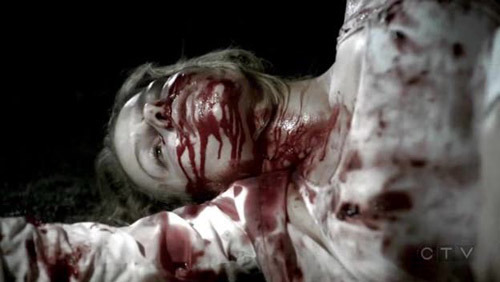
Miss Candi Moore was indeed very naked and very dead. Curled on the floor beside a leather recliner, her body was a patchwork of tan lines, taut implants, and nip and tuck microscars. A cheap, life-size silicone doll of her younger self.
Her knees were together, bent slightly, and one arm angled behind her head. Her back was arched, thrusting her breasts up and apart. Dark red blood matted her blonde hair to the threadbare dhurrie in a sticky halo. A frosted-pink grimace, mascara streaked cheeks, eyes shut tight …If was as if she had tried to strike one last pose in mid-convulsion. Natesh soured on the notion pain climaxed like passion.
Two dead shih tzus nestled against her abdomen, tiny, faux-diamond barrettes in their coifed fur. Her ‘babies’ expired, lapping her poisoned blood.
Natesh cut off his reaction, concentrated on taking in the scene without judgment or opinion like Cooper had told him. “Who found her?” he asked.
Karnel sucked his teeth, waved up the police log and displayed it mid-air for them to see. “Her Charm squirted a death-gram less than forty minutes ago. Medi-Care cc’d Dispatch who sent us to check the premises. Gadowski and me were first on scene. Forensics and Morgue are on the way.”
“Been a busy past couple days,” Cooper nodded. “You check the house security?”
Karnel chuckled. “Old ‘mouth-watering Candi’ here has fallen on hard times. Ain’t banging ‘em like she used to. All this place’s got is perimeter alarms. No video.”
“Any sign of forced entry?”
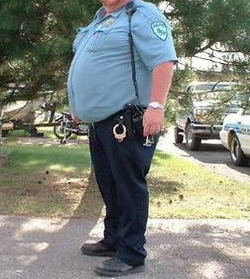
Karnel barked a nasty laugh.
Cooper turned and stared. “Yes or no?”
“Nah.”
Natesh studied the body, looked around the room. “No signs of a struggle, no bruises, defensive wounds. She was all alone?”
Kanel looked at Cooper. “Got yourself a genu-wine de-tect-ive, here.”
The big man shifted on his feet, leaned closer to her head. “What was she watching?” he murmured.
Natesh stared, raised his eyebrows. “What?”
Cooper reached over, plucked a stylus from his partner’s shirt pocket and lifted a clump of wet hair. A thin lime green cable snaked through the aspic to disappear behind her right ear.
Natesh looked from the cable to the huge flatscreen, then back to the cable. The Experia player beside the recliner was blinking green. “Was the player on when you arrived?” he asked the patrolman.
“Wha–?” Karnel started. The pudgy officer had ambled from the hall over to a shelf piled with jewel cases and music discs. Something slim flashed in his hand.
“Outtakes from ‘Candi-land, Ho’. You think this is worth anything?”
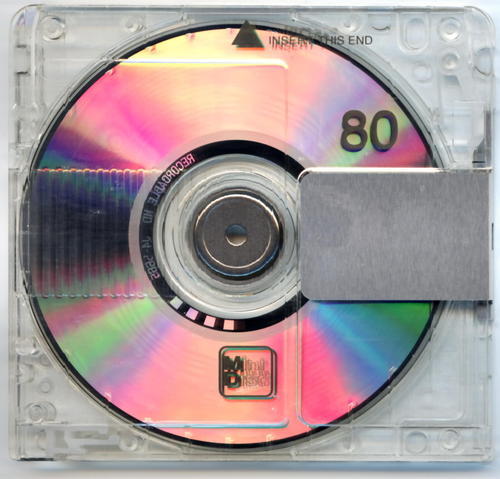
“Why are you touching anything?” Cooper growled.
“So long as he isn’t touching himself,” Natesh muttered.
Cooper’s eyes narrowed but he stifled a smile. “Officer Karnel, are you fleecing my crime scene for souvenirs?”
“What? No.” Karnel blushed. “I mean, yes.” He slid the vid-disc back on the shelf.
“Yes, what?” Cooper growled.
“Yeah, the Bose was on. Gadowski and I came through the door to moaning. First thought was her medi-chip malf-ed in the middle of some serious frolicking.”
“So the set was on. And?”
Karnel’s face broadened in another dopey grin. “You’re never gonna believe it.”
Cooper sighed, unconsciously felt for his cigarettes. “Just tell us.”
“The underwater one: ‘Candi on Cousteau Reef.’”
“What?” Natesh asked.
“She was watching herself, numb-nuts. She archied watching one of her own vids.” The patrolman gave the body a once-over, tutted softly. “Candi always said she was dying to stay young.”
Natesh shook his head, uncomprehending. “Wait… She was all alone, jacked in, watching… feeling herself getting– erm, having intercourse?”
Karnel beamed like he was delivering the punch line of the best joke he’d heard in weeks. “Got it on one, junior. What a way to go, huh?”
The patrolman paused, seemingly lost in thought. Natesh figured it was unfamiliar territory. “Wonder what part she popped at?” Karnel mused. “Piece of fucking trivia, right there, eh?”
Cooper was studying the floor around the body, under the recliner. He nudged a shih tzu with the stylus. “You see a vial? A Clar1ty vial?”

Karnel smirked, fished something out of his vest pocket. “Of course.” He held up an evidence baggie with a tiny blood-smeared glass cylinder in the corner.
Cooper stood, three strides took him to the patrolman. Karnel blinked twice as the detective snatched the baggie out of his hand. “Not an hour and you’ve bollixed the place,” Cooper said in a low voice.
Karnel swallowed, took half a step back. “Hey, I didn’t mean nothing. There’s a carton of ‘em in the freezer.”
Natesh was on his feet. “Take me there.”
Two minutes later Natesh was back in the living room. “Six vials, still sealed. Pfizer-Teva.”
Karnel sniffed. “Some hot-shit po-lice work that is; fucking stamp’s on top of the carton.”
Natesh ignored him. “Think your pal in Forensics could take a look at them?” he asked his partner.
“He’ll do it,” Cooper said. “We got Spongers dropping like fruit flies last seventy-two hours. Any question of tainted brain-juice gets bumped up the priority scale.”
“Wanna bet it’s the same batch as the waterfront?”
Cooper reached for a cigarette, turned to the front door. “Nope.”
Natesh’s smile was short lived. His CE Charm pinged three seconds later: Code 10. Emergency Alert.
Officer Gadowski lurched into view. “Holy shit. We have to roll. Dispatch says a huge bomb just went off in Government Square.”

© Patrick Todoroff – 2013


August 24, 2013
MDBT Guest Post – Mark Carver
MEGA-DARK BOOK BLOG TOUR: “TAKING A BREAK FROM ALL THE DARK STUFF”
A while back, I read an article that admonished writers to stick to one genre. Of course my initial reaction was, “How dare he tell me what to write!” but I soon realized that the article was largely correct. The most successful authors are those who write in one genre, since their fans know what they want and the authors are happy to give it to them. Of course this isn’t a one-size-fits-all rule, but the fact remains that an author has to establish themselves as a brand and this means carving out one’s niche, rather than diluting their brand by dipping their wick into too many genres.
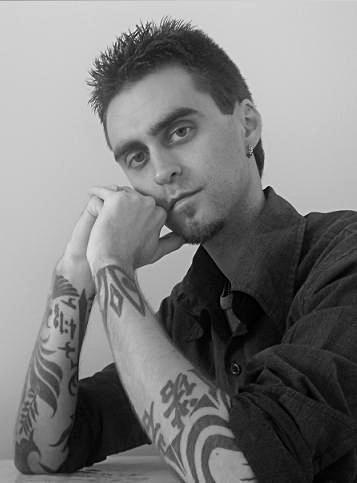 I’ve come to realize that my primary genre is dark supernatural fiction, and I’m comfortable settling into this genre. But writing is a lot of work, and every author needs a vacation now and then. The question on my mind was: how can I branch out into other genres without throwing my readers for a loop?
I’ve come to realize that my primary genre is dark supernatural fiction, and I’m comfortable settling into this genre. But writing is a lot of work, and every author needs a vacation now and then. The question on my mind was: how can I branch out into other genres without throwing my readers for a loop?
As I pondered weak and weary, I came up with a simple solution, which I call “Two On, One Off.” Basically, I will write two books in my primary genre, and then one book in a different genre. By following this schedule, readers can know what to expect and when, and it gives me a chance to stretch my legs and exercise different muscles of my imagination.
My first two books under this plan were The Age of Apollyon and Black Sun, both of which were extremely dark and intense. I definitely needed a break after being submersed in this grim world for nearly a year and a half. Thus, Indelible was born.
While my previous books contained Christian themes and elements, Indelible is a completely secular book. That’s not to say that it’s full of four-letter words or graphic descriptions of sex and violence, but it does contain some mild language, casual sex, partying, drug use, etc. But it’s actually a pretty light and easy read, at least compared to my earlier work. There’s not a single act of violence in the entire story, though there is plenty of tension and drama. I won’t give away any details about the story, but if you’re a fan of tattoos, heavy metal, or fantasy weapons, I guarantee you’ll love Indelible.
Writing this book was an absolute joy, and I had the entire manuscript cleaned and polished in just over three months (half the time it usually takes for me to complete a book). Of course I hope that it will attract a whole new market of readers to my corner, but my main purpose in writing Indelible was just to give my mind a breather.
And it worked. Almost immediately, I launched myself into the final book in The Age of Apollyon Trilogy, entitled Scorn, which I’ve nearly completed. I don’t think I could have written the entire trilogy back-to-back-to-back, and writing Indelible gave my imagination the rest and rejuvenation it needed to finish strong.
So if you’re looking for something a bit different from my usual fare (or anyone else’s, for that matter), check out Indelible when it releases in just a couple of weeks. I think you’ll be very surprised, and that’s exactly what I’m hoping for.


August 22, 2013
ReBlog from Mike Duran’s deCompose
 ENGAGER OR SEPARATIST? CLICK HERE TO READ THE ARTICLE. It’s worth a good think.
ENGAGER OR SEPARATIST? CLICK HERE TO READ THE ARTICLE. It’s worth a good think.
My opinion? Salt needs to be out of the salt shaker to be effective.


August 21, 2013
Guest Post Jen Cudmore
“He made me do it.”
I enjoy hearing author’s stories of how they got started in their carriers. Mine isn’t all that exciting. Actually, in the beginning, it was mortifying.
My husband found some notes I had scratched out on a piece of paper. What are the odds he’d choose that day of all days to help me sort the family mail basket, which I thought would be a safe place to hide personal notes because he usually makes me handle all the mail? After spending one summer catching up on some novels I’d shelved out of busyness, I discovered some ideas of my own swishing around in my brain, so I wrote one of them down.
And he cornered me, paper in hand. “What’s this?”
I tried to tell him it was nothing and he didn’t believe me. So thanks to my husband (God bless his interfering hide) I started working on a manuscript. He encouraged me to really put the effort into it and even bought me a computer, making no effort to hide the fact that in ten years he expected to retire and spend his days on the golf course while I worked on my fifth best seller.
I owe my beginning to a selfish and greedy husband.
At first I wasn’t serious about it. I just dabbled and had some fun. In school I’d always done a decent job on all my papers, so I figured I had the skills to pull off a decent manuscript. But I was not even close. Once I decided this was really what I was supposed to do, I figured I’d best get involved in some writing groups and take some classes. So I volunteered for the local writers conference committee, which was the best thing I ever could have done. And I kept on writing, editing, and submitting until finally a publishers sent me a contract.
I don’t know any other author who was forced to write a book by their spouse. (Is ‘forced’ too strong of a verb? Maybe ‘coerced’ is better.) I guess you could say my writing career had a unique beginning. No, my husband wasn’t the inspiration for any of my characters (although that is a good thought for my next villain.) But I couldn’t have done it without his nudging, or his encouragement over the years.
He made me do it. So I felt obligated to dedicate my first book to him. Probably because I have a serious mental condition.
©2013 Jen Cudmore
***
Jen was born and raised in the Pacific Northwest. She first started writing in 2007 and is now a published historical romance author. The first book in the Lawmen of Clayton County was released this summer from Helping Hands Press. www.jencudmore.com


“Your books suck!”
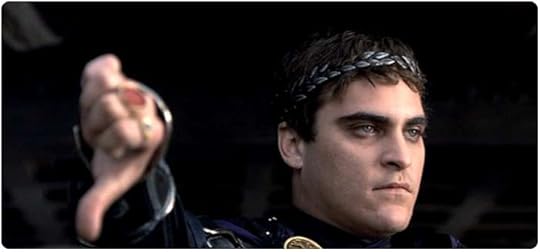
“Your books suck!”
“Yes, they do. But not as bad as some others.”
***
Critics go with the territory – walking out your door means you’re fair game.
Here on Cape Cod, you can’t help bump into artists. I’ve met dozens of people with an excess of talent, a better eye for color, light, texture, detail, who have that gift, that creative lightning, who could make far better stained glass windows than me. But they don’t make windows. I do. So mine are better than theirs. Same thing with writing. (or sculpting, or painting…)
The learning curve requires you write your first book before you write your second, and anything worth doing is worth doing well, worth doing poorly at first.
Oh, and my monthly remittance from Amazon just showed up. Again.


August 13, 2013
I see lead people…
Not a post on indie-publishing or faith in fiction or any such. This time, it’s personal.
***
WARGAMING –
An odd, analog hobby for a digital age. Forget WoW – gimme 28mm lead tin alloy.
H.G. Wells was the one to popularize and codify it for us English types way back in 1913. Wiki up here You can insist it’s ‘table top military re-enactments’ or ‘miniature tactical simulation’ all you want, but you’re really playing with toy soldiers. After all these years, I still have to resist making “pew, pew, pew! ratatatatatat! aaargh…” sound effects as the game unfolds.
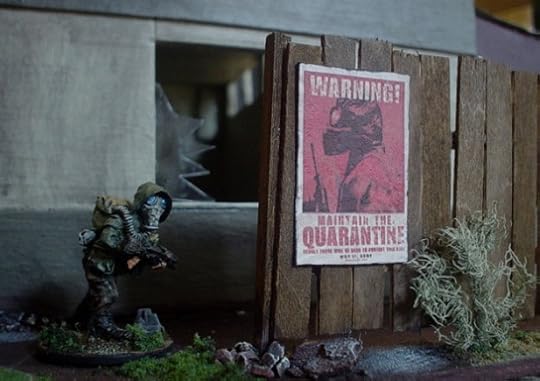
based on the awesomely brooding PC game STALKER
Some background: A car accident at the age of 7 left me less than athletic, and much of my childhood was spent trying to but never quite fitting in to normal kid-activities. I was self-conscious, an outsider, pretty confused and unhappy, actually. Spent a lot of time in my mind. And reading. I owe a debt of gratitude to Lloyd Alexander for his Chronicles of Prydain series.
IIRC, I was 13 when my stepfather, trying to find something that interested me, give me some hobby to focus on, took me to a toy soldier factory in White Plains, New York. We got the tour: melting pots for lead/tin, round rubber molds, big spin-casting machines, rows and rows of numbered boxes filled with English Civil War Roundhead pikemen, Pirates, French Hussars, Prussian mercenaries, Green Mountain Boys, Napoleonic 9-pounder horse artillery… They were all there, thousand of them, shiny, tiny and new.
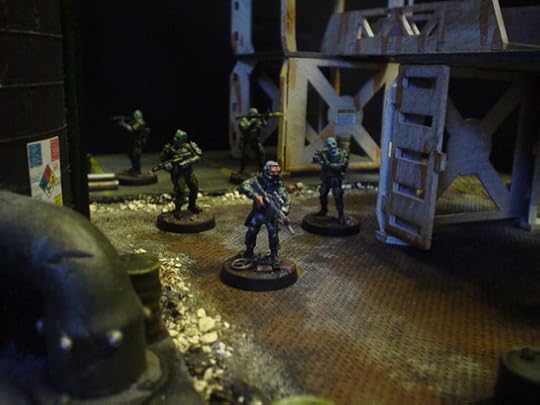
The thing I remember most was how happy the owner/guide was. I recall having the distinct impression when I was younger that I didn’t know a single adult who seemed truly happy. But this guy was. His face lit up as he recounted how he and his friends rented out a local high-school gymnasium for a week during the summer and re-enacted the battle of Waterloo in miniature. The whole thing to scale. He was genuine. He really enjoyed what he did for work. He seemed content. I remember him slipping in a couple extra figs with our purchase that day, saying I was welcome to come back any time. Sit in on a game, even.
American War of Independence. Those were my first figs. Blame ‘Johnny Tremaine’, ‘My brother Sam is Dead’, and ‘Drums along the Mohawk’. No Lobsterback or Hessian mercenary was going to run off my patriotic militia and Continental army regulars. Don’t tread on me, dude.
I had a game room in the basement, a hobby desk and a table made from an old door on cinderblocks. I spent hours painting the uniforms, facings, and muskets, flocking model railroad trees, building fences out of matchsticks, and making barns and farm houses out of cereal boxes and construction paper. One evening, I re-created a British raid on an innocent American town; I shut the door, set up my Redcoats and minutemen, turned out the light, then used stolen matches to set fire to all the little houses. I got down eye level and watched the story unfold as it all burned up. (Yes, I got in a lot of trouble. But it was worth it.)
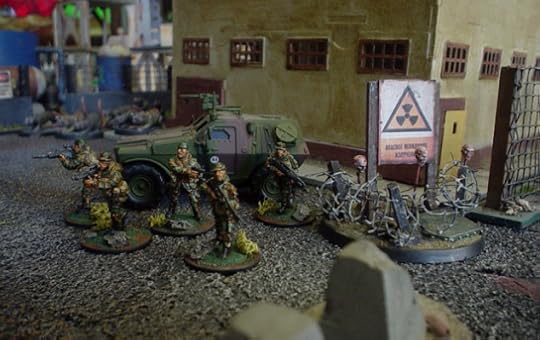
Flash forward a couple decades, past detours into girls, drugs, friends doing B & Es on liquor stores, college, conversion, ministry, foreign field missionary work … to my eldest son coming home one day with a plea from his Middle School for After-School Enrichment Program teachers. “Anything… Hobby, craft, sport – anything at all.” it said. “Please. We’ll pay you.”
Filled out the paper confident of a ‘thanks but no thanks’ response, (esoteric, masculine, war toys, *gasp* …) and ended up with a “Military Miniatures and Table Top Gaming” program in two local middle schools for the next four years. (Getting paid to play with kids and toy soldiers. I love this country.) Response was so overwhelming, I rented out the empty shop next to my glass studio and ran a game room on the weekend.
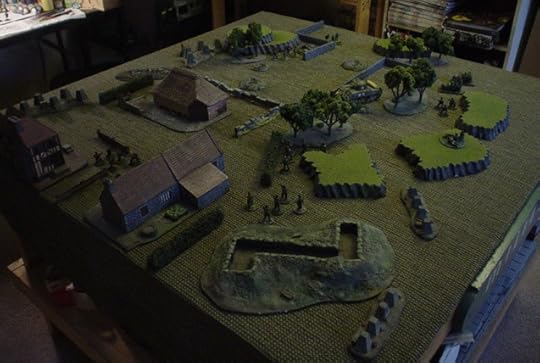
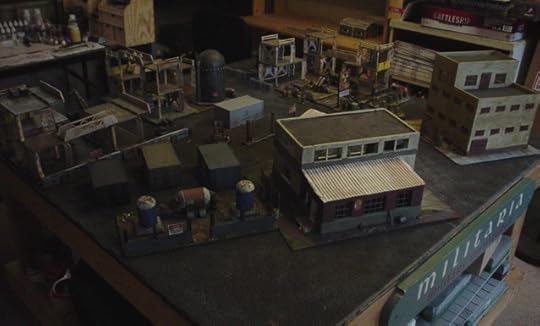
Thirty-six years later, I’m mostly into Sci Fi, near-future stuff now, with a smattering of Western Europe – Saving Private Ryan – WW II, and some 6mm Modern Micro-armor.
Yes, I’m a collector. I really do find painting with those tiny brushes relaxing. I get a kick out of scratch-building an abandoned warehouse or some Post-apoc industrial center. I like strategy, tactics, the coolness-quotient of new figs, the interactive, moving diorama as the mission unfolds.
But what I thrive on is the friendship, the human interaction over the gaming table. It’s a brief intermission when the only conflict in your world is in miniature on a table top and the only threats are 28mm scale. It’s the banter, laughing at the fleeing hero, mocking the point-blank miss, incredulous at the impossible hit, cackling over the lucky save… It’s the look on someone’s face when they win. Or even lose a hard-fought battle.
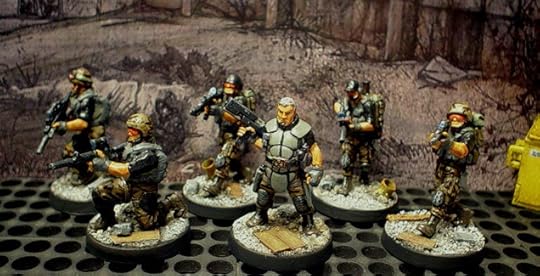
I like that look because it’s the same one that guy had all those years ago in White Plains.
Hobby Blog: STALKER7


August 12, 2013
Euthanizing God?

EUTHANIZING GOD?
Now that I figured out I’m not Flannery O’Connor, I’ve been mulling over my experience with representations of Christian faith in popular science fiction. Note, this isn’t a researched thesis, so take it with salt.
Asimov’s classic “Caves of Steel” was one of the first sci-fi novels I ever read. Turns out the antagonist/murderer is a fundamentalist Christian, or ‘Medievalist’, that the android character tells to ‘Go and sin no more.” Irony abounds. Flash forward four decades to John’s Scalzi’s “Old Man’s War”, (great book, btw) which whips out a ‘stupid Christian’ stereotype in one of the early scenes. We got a space elevator, baby. Who needs the Sermon on the Mount?
Perhaps my impression derives from a peculiar selection of sci fi novels. Maybe I’m being peevish. However, it seems to me most of the fictional future wants traditional religion gone. Buried. Forgotten.
Cause of death varies, but there’s no need for God in fictional tomorrow. I ran into yet another example in a (very good) self-pubbed cyberpunk novel the other night. Oddly enough, it wasn’t the typical ‘Christian as villain/idiot’ trope. It was past contempt to outright dismissal.
In this particular projection, some tectonic event/discovery finally allows Mankind to dispatch God like a cantankerous, embarrassing relation. After all, He clung to life long past any reasonable expiration only by preying on the impoverished and uneducated. About time, eh? Future man gets to excise religion like a useless appendage, a sort of appendix on the human condition. Offering a meager, questionable inheritance, Mankind jettisons religion for a bright and shiny rocket ship/microchip.
If that isn’t a prelude to dystopia, I’m not sure what is. (See Communist Russia for recent historical example)
Yes, I actually paid attention in Western Civ classes. Yes, I understand stereotypes exist for a reason. Yes, I keep up with the world news. No, I’m not a Luddite. It’s the unreality of that prediction, the sheer disconnect with history, psychology and humanity I find so inconceivable.
We can bandy statistics, quote surveys, play Copy & Paste with internet articles forever. I’m happy to talk about it, but I’ll refer you to CHRISTIANS ARE HATE-FILLED HYPOCRITES and HOW CHRISTIANITY CHANGED THE WORLD to ground the discussion first.
Before you think I’m whinging or lobbing hand-grenades over the cloister walls at marauding secularists, I am painfully aware of abysmally stupid extremes. As un-Christian as it is, I loathe and mock those folks too. (I remain convinced sarcasm is a divine attribute. God is helping me.) Fact is however, people have been wrapping their lusts in good causes forever; religion doesn’t get a pass. And it certainly doesn’t mean God is cruel or faith is inherently tragic, debilitating, or divisive.
My net-friend, fellow blogger and writer Katherine Coble recently posted an interesting article: Christian vs Christ-Following. It is yet another comment on the unenviable but inevitable reality of Christian reproach. When I use the term ‘Christian’, I refer to those who have identified with the person of Jesus, hold to the veracity of Scripture, and trust in the grace of Jesus’ death, burial and resurrection as the remedy to their sin and death.
Credibility demands I grapple with extremists and blunderers, but realism acknowledges for every high profile failure, reprobate, and lunatic, there are scores of people striving for devout, authentic lives. Yes, those people are flawed, conflicted. Who isn’t?

My concern here is the plausible depiction of believers in spec-fiction, and the challenge to not trade the mystery of God, (what C.S. Lewis called the Numinous) for the convenient high-ground of Morality or a cast of contrived Baptisney-land caricatures. Both the Numinous and the Moral are essential if I’m honest to my faith, but I think mystery is what ultimately captivates, just as it’s the person of Jesus who ultimately saves.
My question to Christian authors is if we don’t wrestle with portraits of real believers, a real God, and real faith, who will?


August 7, 2013
Author Jess Hanna: Mega-Dark Blog Tour #2
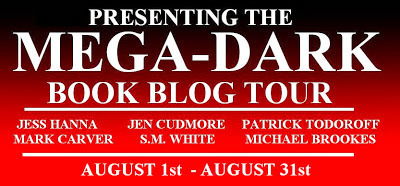
Next Installment of the Mega-Dark Blog Tour. Now up: Jess Hanna
More about Me
This is a continuation of my first post on the Mega Dark Blog Tour. In that post, I focused on where I came from, when I knew I wanted to be a storyteller, and the origins of my fascination with the supernatural. This second post will continue along that vein, providing further insight into what motivates me to write. But before I dive in, I would like to thank Patrick Todoroff for hosting me on his blog.
After I got saved, I saw the world with an alarming new clarity. The supernatural things that interested me before now took on a more sinister tone. I found that the majority of it (Ouija boards, the occult, ghosts, aliens, etc.) was meant to lead me away from the truth of God. Don’t get me wrong, I was still fascinated by these things, but the way I viewed them was not longer with fascination, but as tools of the enemy.
It wasn’t too far into the future that I stopped writing altogether. While I had an interest and felt I could write well, I didn’t see it as a viable career choice. I allowed ‘real’ life to crowd out my love of writing. I even stopped reading for many years. To fill the void I lived my life the best I could, moving from one unfulfilling job to another. It wasn’t and hasn’t been terrible, but spending a career climbing the corporate ladder is just not all that appealing to me.
Everything changed when I turned 32. While floundering in questioning what to do with my life, I felt a strong urge to get back to writing. I hadn’t written anything in so long that I wasn’t sure I could still do it. I tried to push the feeling away, to be practical, but the tug was strong. I knew I had to write, regardless of whether or not I felt the tangible benefit of it in this life.
I also started reading again and re-read my copy of On Writing by Stephen King. After I finished it, I took his advice and just started writing. Within a few months, I had written the first draft of my first book, The Road to Hell. I was so happy to just finish a full length novel at all, and let that elation carry me until I started the second draft. I found it was hard work, taking what I had written and scrutinizing it with a critical and grammatical eye.
To find out more about my experience writing my first book, along with details about my motivation and the painstaking process of multiple edits and the submission process, check out my next stop on the Mega Dark Blog Tour with Mark Carver.
Don’t forget to check out my website for more about me and my writing.


August 3, 2013
Junk Food and Cowardice re-post
RE-POSTED FOR THOSE WHO DON’T LIKE TO CLICK THROUGH:
***
JUNK FOOD AND COWARDICE
I was told the other day my fiction was the literary equivalent of fast food: cheap, suspect, and eminently forgettable. In this person’s mind, too much fiction – especially genre fiction – is impractical. Unhealthy.
Fact is, it’s true in many ways: my novels won’t ever make the “Great Books of the Western World” list. (http://thegreatestbooks.org/lists/40) I’m not in a snit over it. Espionage thrillers about futuristic mercenaries, clones and killer drones aren’t going to change the world. I’m OK with that. As a writer, I’m pecking at the keyboard to exercise my imagination, to spin a yarn, hopefully entertain someone. Maybe even make a couple extra bucks before my time is up. I just hope I’m more like Panera than Mcdonalds.
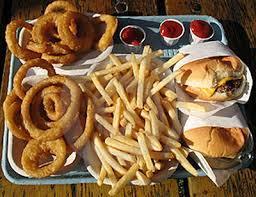
now I want onion rings…
I’m aiming for that lofty goal because as a writer and artist who is also a Christian, I’d like to inject some substance, trace-elements of spiritual qualities in my work. After all, it is a product of my time and labor, an extension of my person, if you will, and I’d hate to think my soul is vapid and shallow. But that’s the fear, the accusation, isn’t it?
Which is what brought me to the charge of cowardice.
I finished Flannery O’Connor’s “The Violent Bear it Away” recently. (http://www.amazon.com/The-Violent-Bear-Away-ebook/dp/B009LRWWN6/ref=tmm_kin_title_0?ie=UTF8&qid=1375299985&sr=1-1) I read it decades ago for some Eng Lit course, and didn’t get it at all. I was stunned this time around though. The following passage in particular hit me.
“Tarwater clenched his fists. He stood like one condemned, waiting at the spot of execution. Then the revelation came, silent, implacable, direct as a bullet. He did not look into the eyes of any fiery beast or see a burning bush. He only knew, with a certainty sunk in despair, that he was expected to baptize the child he saw and begin the life his great-uncle had prepared him for. He knew that he was called to be a prophet and that the ways of his prophecy would not be remarkable. His black pupils, glassy and still, reflected depth on depth his own stricken image of himself, trudging into the distance in the bleeding stinking mad shadow of Jesus, until at last he received his reward, a broken fish, a multiplied loaf. The Lord out of dust had created him, had made him blood and nerve and mind, had made him to bleed and weep and think, and set him in a world of loss and fire all to baptize one idiot child that He need not have created in the first place and to cry out a gospel just as foolish. He tried to shout, “NO!” but it was like trying to shout in his sleep. The sound was saturated in silence, lost.”
Excerpt From: O’Connor, Flannery. “The Violent Bear It Away.” Farrar, Straus and Giroux.
Your mileage may vary, but what stunned me wasn’t merely the prose, the theme, the characters; it’s classic American literature for a reason. But I had the sudden intimate realization I lacked both the skill and the courage to write something that messy, that audacious. There’s an anger, a certain mad daring, not to mention profound bravery needed to grapple with the enormity of free will, Man’s primal defiance and the mystery of God’s grace without imposing clichéd answers. I was numbed, humbled.
I confess that with rare exception, I find most of the contemporary Christian artistic offerings as insipid as they are sincere. My opinion is that as flawed as we believers are and will be down here, the reality of God deserves better than the modern evangelical status quo. The Spirit of God moved on the face of the waters and brought the entire universe into being at the divine fiat. That is the spirit reportedly indwelling us.
As an artist, a writer, I agree with Akira Kurosawa that “The role of the artist is to not look away.” I understand what Steven Pressfield means when he says “The artist is seeking the real by means of the artificial.” It’s just that I flatter myself if I think that simply waving around the live-wire of some controversy, spilling some fictitious blood or allowing my non-Christian characters to drop an F-bomb or three, I’ve struck a blow against saccharine mediocrity. It might be bold to some, blasphemy to others. It might make me a shark in the koi pond, a vandal in the Precious Moments Temple, but sizzle ain’t steak. None of that is inherently more gritty or authentic. Like the song says, ‘It ain’t necessarily so.’
O’Connor’s novel reminded me once again true skill doesn’t rely on gimmicks, that gratuitous detail isn’t realism, and that my work will never really ring true unless I’m willing to leave the cloistered certainty of comfortable answers. As a Christian, an artist, a writer, as a human being, I have to venture out into the mystery that is God, the madness that is love, and the scandal that is grace, then have the courage, the humility to get out of the way and let them be what they are.
[image error]



